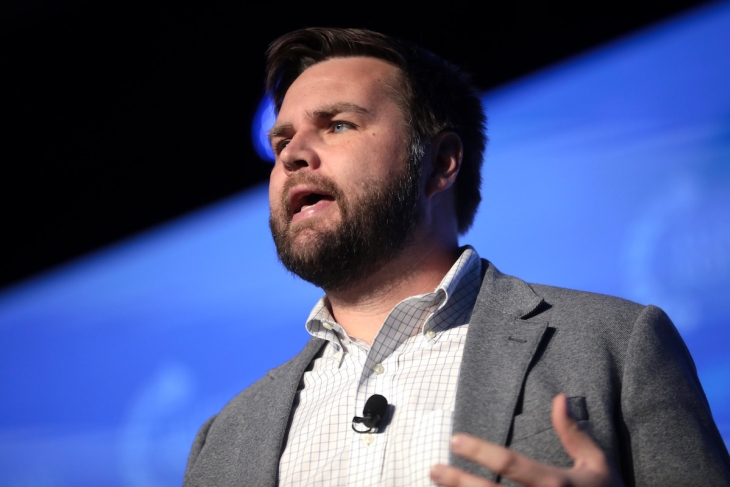Vance vs. Pence: How Trump’s VP picks compare on education
On Monday, Donald Trump chose Senator J.D. Vance as his running mate, setting up the Ohio Republican as the future of the party and, in the process, mapping out the potential trajectory of federal education policy in the years ahead. Trump’s pick signals adoubling downon his MAGA brand, which, as far as education is concerned, features afixation on culture war dogfightsand using the issue as a cudgel to continue fanning the flames of populist anger. Specifically, this means tapping intobroad parental discontentover educational and education-related issues, many of which were turbocharged by the pandemic.
To wit, Vance oncetweeted, “Parents should absolutely be the primary stakeholders in their kids’ education, and anyone who disagrees shouldstay the hell away from our kids” (emphasis added). Using similarly stark and uncompromising terms, the GOP veep nomineehas said, “My education policy is that we should stop funding institutions that teach American kids to support terrorist killers.” Abrasive and acidic language like this is red meat for the GOP’s hardcore base, but it differs markedly from the framing used by Trump’s first vice president, Mike Pence, to argue for similar policy prescriptions.
Case in point is school choice, which in recent years has driven a bitter wedge within education reform. When Pencemade the casefor the issue, he would lead withcharter schoolsas much as with the private and parochial variety, underscoring the benefits of choice largely accruing to poor and minority kids and communities. Trump’s erstwhile sidekick had also staunchly supported both public and private forms of choice while he was Indiana’s governor. Nowadays, however, the GOP is far more likely to view charter schools as apallid alternativeto unfettered school choice, eager toembrace the culture warin order to build momentum to expand vouchers, education savings accounts, and the like.
It wasn’t easy for Pence. Recall that the Trump administration proposedzeroing outfederal funding for charter schools during its final year in office. The then-vice president sometimes had to bite his tongue and straddle lines. Vance will face no such complications. If anything, we might expect him to amplify his boss’s grievance-based rhetoric around schooling. In his 2022 Senate campaign website, Vance dutifully went after K–12 education: “As we saw from the radical left’s culture war waged during Covid-19 and the continued [critical race theory] indoctrination in our kids’ schools, it’s clear that we should never let politics drive public health decisions and deprive our kids of a good education.”
It’s a far cry from the pen the rising Republican star had wielded eight years ago, when his bestselling memoir,Hillbilly Elegy, was reviewedin these pages by Robert Pondiscio. Back then, Vance offered a serious and unvarnished assessment of the problems besetting poor kids in low-income neighborhoods:
Watching an episode ofThe West Wingon television, Vance is struck that “in an entire discussion about why poor kids struggled in school, the emphasis rested entirely on public institutions. As a teacher at my old high school told me recently, ‘They want us to be shepherds to these kids. But no one wants to talk about the fact that so many of them are raised by wolves.’” The characterization is unkind, but Vance is unsparing in his analysis of the people he loves and the culture they have created. It can include “an almost religious faith” in hard work and the American dream; yet he describes his town as one “where 30 percent of the young men work less than twenty hours a week, and not a single person [is] aware of his own laziness.”
A year later,in an event co-sponsored by Fordham, Vance argued that solving the problems related to poverty requires avoiding extreme positions and meetingsomewhere in between:
While specifics of education policy were not topics of discussion at the event, the individual journeys of the panelists are heavily defined by education: Vance from a small-town public school to The Ohio State University to the hallowed but bewildering halls of Yale… Vance says we must end the political blame game and stop the polarizing rhetoric that unnecessarily divides us… We must see what success for poor children and families looks like… To do that we must, as J.D. Vance tells us, “come to our senses.”
Boy, could today’s education politics use more of that version of Vance!

So how to make sense of Trump’s new partner? Unlike Pence, who brought arespectable recordon education reform from the Hoosier State, Vance haslittle to showfor his limited time in the Senate—or otherwise, save for his first book. For whatever his faults, Pence steered a relatively steady course. He didn’t zig and zag or shift and contradict himself. The former vice president displayed a kind of integrity that Vance lacks, and that’s evident in how each has approached ed reform. It’s possible that Vance will be asupporter of CTEand apprenticeships, given his working-class roots. What seems certain is that he will ignore his own earlier advice and instead will cynically use K–12 schools to sow animosity and discord when it’s expedient to do so. If Vance eventually becomes president or the Republican nominee for president at some point, we can only hope that circumstances will be different and an interest in sound education policymaking restored.






